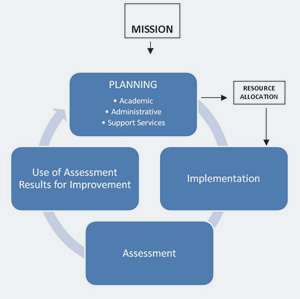St. Andrews University, a branch of Webber International University (Babson Park, Florida), is student and teaching-focused. Located in Laurinburg, North Carolina, a broad range of undergraduate liberal arts and sciences majors are available, to both traditional residential students and adult learners, in a curriculum that is global in scope and practical in its application. The quality of the educational experience has been recognized by U.S. News and World Report, The Princeton Review, and GI Jobs among others. In addition to its many academic programs, there are numerous men’s and women’s athletic teams, an acclaimed university press, a nationally competitive equestrian program, opportunities for international study, and an award-winning pipe band.
Classes challenge the student to think critically and to express ideas clearly and effectively. Emphasis on interdisciplinary study and the acquisition and mastery of communication skills, analytical techniques, problem-solving strategies, leadership skills and creative expression are focal points of the curriculum. Members of the faculty work cooperatively as teachers, mentors, and advisors while maintaining a commitment to scholarship and professional development.
Mission
Webber International University
and St. Andrews University
(a branch of Webber International University)
(collectively, The University)
The University’s mission is to offer students an array of business, liberal arts and sciences, and pre-professional programs of study that create a life transforming educational opportunity which is practical in its application, global in its scope, and multi-disciplinary in its general education core. Students will acquire depth of knowledge and expertise in their chosen field of study, balanced by breadth of knowledge across various disciplines, while pursuing a degree at associate, bachelor, or master level. Special emphasis is placed on enhancing oral and written communication, and critical thinking skills. The international quality of the student body enriches personal experience and promotes understanding of international cultures and influences. Through an atmosphere in which self-discipline, creativity and cultivation of ethical standards are enhanced, the University is dedicated to teaching its students the “how to learn, how to think, and how to apply method” to each new challenge.
The University awards degrees at the associate, bachelor and master levels, and offers students educational opportunities at locations in Florida and North Carolina. Traditional classroom, online, and hybrid learning environments are available. Opportunities exist for students to draw on the courses and programs of study at both locations through online courses and/or periods of residence at either campus. Webber’s programs in Florida focus on the worldwide business environment, and emphasize development of skills in administration and strategic planning, applied modern business practices, and entrepreneurship. The St. Andrews locations offer an array of traditional undergraduate liberal arts and sciences and pre-professional programs of study.
Administrative approval: November 17, 2011
Approved by the Webber and St. Andrews Boards of Trustees: December 19, 2011
Revised: February 2014
General information about the University is available throughout the website.
St. Andrews is a branch of Webber International University (1201 N. Scenic Highway, Babson Park, Florida, telephone 1-800-741-1844). Webber International University is accredited by the the Southern Association of Colleges and Schools Commission on Colleges to award degrees at the associate, bachelor and master’s levels. Contact the Commission on Colleges at 1866 Southern Lane, Decatur, Georgia 30033-4097 or call 404-679-4500 for questions about the accreditation of Webber International University. The Elementary Education program at St. Andrews is accredited by the North Carolina Department of Public Instruction (NCDPI). And the Ride Like A Knight Program has been granted Premier Accredited Center status by PATH, Intl. (the Professional Association of Therapeutic Horsemanship International). Information about each of these accreditations can be found on the University website at https://www.sa.edu/about/accreditation.
Information regarding requirements for admission to an academic program, the transfer student application process and the criteria used regarding transfer credits earned at another institution is available in the Admissions Office, 1700 Dogwood Mile, Laurinburg, NC 28352, phone 910-277-5555 or 1-800-763-0198, or https://www.sa.edu/admissions/admissions-requirements Descriptions of academic offerings are available at https://www.sa.edu/academics.
For more information go to https://www.sa.edu/about.
